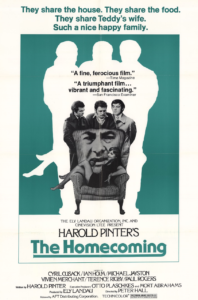Nomenclature in Harold Pinter’s The Homecoming
Richard Martin has continued his nomenclature theme in this analysis of Harold Pinter’s The Homecoming, extending his A level English Literature students reading.
‘Don’t call me that, that’s the name my mother gave me.’
My intention in this essay is to consider the significance of the names Pinter gave his characters in The Homecoming (1965) and to show how the play’s preoccupation with inter-and intra-generational rivalry, one-upmanship and the primal nature of human interaction intersects with the playwright’s ingenious but also unobtrusive nomenclature.

At one point in the play, Max calls Sam ‘Sammy’. Hypocorism – the conferring of pet names on others – is something we take for granted in family life insofar as we equate this activity with ideas of affection and familiarity. The underside of hypocorism however is evident to us when we think of what nicknames may also be called, namely diminutives. And diminutives diminish. The point in the play when Max uses a diminutive of Sam is when the former has tried to ridicule Max. Max, regaining the upper hand in the conversation by implying that any fool would understand what he meant, delivers a withering and patronising put-down:
MAX When Dad died he said to me, Max, look after your brothers…
SAM How could he say that when he was dead?…
MAX Before he died, Sam. Just before…His last sacred words, Sammy.’
In The Homecoming, paradoxically, the lengthening of a name by the adding of a ‘y’ to it as in Sammy, Teddy, Lenny and Joey is intended to diminish, to castrate metaphorically. Adding a ‘y’ sound to a name infantilises. Max’s attempts to keep his sons pre-pubescent so that they do not threaten his authority are represented not only through nomenclature but in his striking refusal to acknowledge that Teddy is a married man as well as in his desire for Joey to accompany him to a football match. This traditional exercise in bonding between father and son is in this instance predicated on the idea of thwarting Joey’s attempts to train, to become an efficient pugilist, a figure of power: ‘I’m training this afternoon. I’m doing six rounds with Blackie.’ Notably, Max treasures a memory of the boys fresh from their baths ‘before they started shaving’. His intention has been to maintain his authority and their subservience. And nomenclature plays its part.

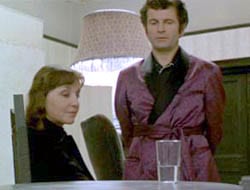
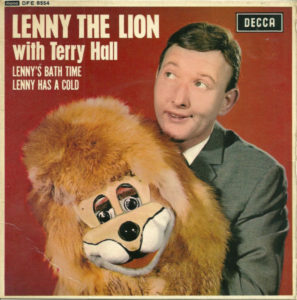
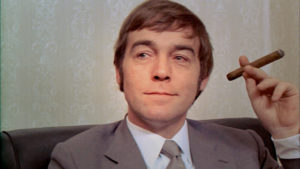
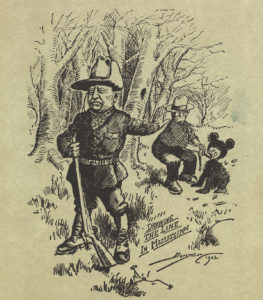
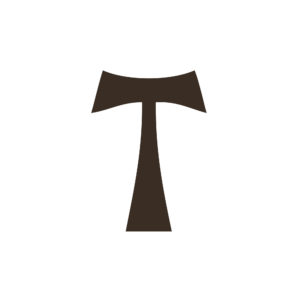
It is possible that Teddy’s given name is Theodore. The name means ‘beloved of God’ or ‘God’s gift’ and these derivations are appropriate at least to Teddy’s conception of himself. His speech to Max, Lenny and Joey – though delivered at a point in the play when it achieves the status merely of irony – underlines his egotism and what his homecoming was meant to mean to his family members. They have not ascended to the dizzy heights of professorship but hold down (or in Max’s case held down) jobs in butchering, procuring and demolition:
‘You wouldn’t understand my works. You wouldn’t have the faintest idea of what they were about…you’re way behind.’

Two things may strike you here. The play makes allusion to Venice. It is the city to which Teddy and Ruth came prior to their visit to the former’s North London home:
‘You liked Venice, didn’t you? It was lovely, wasn’t it? You had a good week. I mean…I took you there. I can speak Italian.’
Teddy’s perception of himself as ‘god’s gift’ is much in evidence here. Ruth is being reminded of the affluence she enjoys courtesy of her husband and of his cultural prowess.
Secondly, St Theodore’s destruction of a temple sacred to the mother goddess, Cybele is notable in respect of the North London home over which Jessie continues to preside as a haunting presence. Pinter inverts the story of Saint Theodore by having Teddy failing to conquer a hostile space but instead being vanquished from it. He returns to America with a tail not so much between his legs as neatly severed and will re-enact the role of Max in the previous generation by becoming the sole provider of offspring not necessarily his, anymore than Max is the father of Teddy or of Joey.
Who is Teddy’s father? The play never explicitly tells us but Sam’s intellectual exhibitionism (his time as a butcher’s apprentice was spent ‘doing crossword puzzles’) in one generation, leads in the next generation to the production of a ‘professor of philosophy’ – albeit one reticent in competing with his younger brother in metaphysical speculation. ‘Uncle Sam’ invokes America and encourages in the audience a subliminal association to be made between Sam and Teddy. This is confirmed by the poignant inter-change between the two men in which the self-interested Sam in an act of only ostensible generosity confides that Teddy was Jessie’s favourite son, making him Jessie’s favourite lover – this despite being passed over in favour of Mac. Sam refers to having chauffered ‘a Yankee…out…to the Airport’ which only compounds the subliminal effect Pinter has worked to achieve.
Samuel is the name of a prophet in the Bible and Pinter’s striking inversion of religious ideas (implicit in Theodore’s successful arson attempt on the temple of Cybele and Teddy’s failure to disrupt the power dynamic of the North London home) is also evident here. Sam in Pinter’s play is remarkable not for looking into the future but looking back into the past. He spends the play needling Max about his relationship with Jessie: ‘I want to remind you.’ Just prior to his collapse he makes a pronouncement about the past and not the future:
‘MacGregor had Jessie in the back of my cab as I drove them along.’
Sam looks back in time here to a point when he looked back into the back of his cab, using his rear view mirror. He is arguably here also identifying a connection between the past, the present and the future. What he saw was the cuckolding of his elder brother, what he also witnessed was his own cuckolding. What he sees conflates triumph and defeat.
Sam might well also have witnessed here the conception of Joey since the play implies that if the elder brother Teddy is actually Sam’s and the middle brother Max’s (both trade in flesh as respectively butcher and pimp) then the pugilistic Joey is the son of the physically imposing Mac: ‘he was a big man, he was over six foot tall.’ ‘Mac’ as a prefix means ‘son of’ and thus centralises the issue of paternity and its mysteries in the play. The violence of the MacGregor clan (they slaughtered 140 rival clan members) in the early seventeenth century led King James VI to dismantle the clan and prohibit the name being used. It might be notable in this respect that Max tells us that his friend and cuckolder had forfeited all but the prefix: ‘he was the only one they called Mac’. Max does not so much prohibit the use of the name MacGregor as make certain aspects of his behaviour off limits.
This leads us with the two most powerful figures in the play who are both female. Jessie is the feminised version of Jesse – a significant name in Christian tradition because Jesse is the King of the Israelites, father of King David and the ancestor of Jesus. At the most basic level of analysis, Jessie significantly has a name with royal associations. Notably, Jesse derives etymologically from ‘gift of god’ and thus parallels the inner meaning of the name ‘Theodore’. The name Jesse is illustrious and it is notable that it is borne in this play – in its feminised form – by a woman.
Ruth’s name also has Biblical resonance attached to it. Ruth is a Moabite woman who accompanies her mother-in-law, Naomi to Bethlehem after the death of her husband. There she meets and marries Boaz. The biblical Ruth chooses another partner only due to the death of her previous spouse – not so Pinter’s polyamorous Ruth. Ruth is notable in The Book of Ruth for being in exile in the same way as Ruth who finds herself on a continent, figured by her as arid on account of her unsatisfactory marriage to Teddy. Ruth is notable too for her fidelity to her mother-in-law and memorably says to Naomi: ‘Wither thou goest, I will go.’ Ruth in Pinter’s play is presented both as unfaithful in the play to her husband (with Lenny and Joey) and in the back story as encoded in Teddy’s identification of her as ‘a very popular woman (having) lots of friends.’ The name ‘Ruth’ means ‘friend’ or ‘companion’ – upon which idea Pinter puts a significant polyamorous spin. In Pinter’s play Ruth’s infidelities to Teddy implies her fidelity to Jessie, her mother-in-law. She will re-enact Jessie’s behaviour as a representation of uncontrollable female sexuality – regardless of Max, Lenny and Joey’s attempts to turn Ruth into a biddable version of Jessie. She will not prove, as Max surmises at the very end of the play, ‘adaptable’.
There is a final name to consider. It is not the name of a person but a street. Twice in the play Lenny refers to ‘Greek Street’ in Soho, the centre of the Capital’s prostitution in the ‘fifties and ‘sixties. At the same time the word ‘Greek’ invokes the play’s primal, archetypal qualities and its centralising of the myth of Oedipus as understood from a Freudian perspective. The Homecoming is both a play that takes place at a particular historical moment – as the allusions to the National Health, the ‘Brain Drain’, the Kray Brothers and the ‘Profumo scandal’ make clear. At the same time the play has a mythical undertow. Pinter’s ostensibly unobtrusive nomenclature operates in the same way: mundane (for none of the names are uncommon for the time) but at the same time resonant.
Richard Martin is Head of English & Theatre Studies at MPW London and regularly supplements his teaching with articles relating to and stretching beyond the syllabus of study. See Richard’s other articles:


